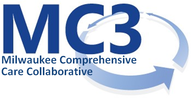DEFINITION
Recovery involves moving through stages of change and phases of recovery for each co-occurring condition or issue. Mental illness and substance dependence as well as other conditions, such as medical disorders, trauma, and homelessness are examples of chronic, biopsychosocial conditions that can be understood using a disease and recovery (or condition and recovery) model. Relapse is acknowledged and accepted as part of the recovery process. Each condition has parallel phases of recovery (acute stabilization, engagement and motivational enhancement, prolonged stabilization and relapse prevention, rehabilitation and growth) and stages of change. For each condition or issue, interventions/care coordination plan and outcomes must be matched to a specific stage of change and phase of recovery.
Examples of Indicators:
- Change in language of documentation to reflect Stage of Change for recovery goals.
- Frequent review/updates of recovery plan to accurately reflect progress through Stages of Change for each recovery goal.
- Motivational interventions and/or strategies are utilized when appropriate, based on the individual’s Stage of Change for each recovery goal.
- Relapse does not precipitate a discharge from helping services, as evidenced by discharge documentation.
- Individuals are welcomed back to helping services, regardless of their Stage of Change.
- Individuals’ satisfaction with the agency’s stage-matched services is assessed through surveys, focus groups, in-depth interviews, and consumer advisory panels.
Assessments:
- University of Rhode Island Change Assessment Scale (URICA): 32-item assessment measuring an individual’s stage of change (pre-contemplation, contemplation, action, and maintenance) for a variety of health and addictive behaviors.
- Stages of Change Readiness and Treatment Eagerness Scale (SOCRATES): 19-item scale designed to address readiness to change alcohol or drug use problems; used primarily for research purposes; public domain; easy to administer and score.
- Substance Abuse Treatment Scale (SATS): Assesses and monitors the progress that people with severe mental illness make toward recovery from substance use disorder; ranks individuals along the Stages of Treatment continuum from “Pre-Engagement” to “Remission/Recovery” with regards to their progress through treatment for substance use issues.
